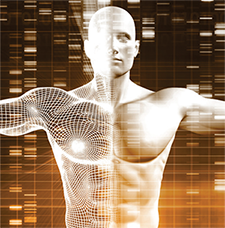
kentoh/shutterstock.com
WASHINGTON, D.C.—For patients with osteoarthritis and other age-related musculoskeletal diseases, treatment with mesenchymal stem cells may soon offer a potent way to slow and repair degenerative signs of disease. This is the goal, a goal that is moving from the laboratory to the clinic as results from ongoing randomized clinical trials show the safety and efficacy of this therapy and advances in technology are making this costly and complex therapeutic approach more feasible.
During a session titled, What Is the Science Behind Mesenchymal Stem Cell Therapy in Arthritis, at the 2016 ACR/ARHP Annual Meeting, a panel of experts who have been studying the basic science and clinical application of these cells discussed some of the key findings and issues to date in their potential application to treat patients with arthritic diseases.
Using Stem Cells to Repair Articular Cartilage
Johnny Huard, PhD, distinguished professor & vice chair for research, Department of Orthopaedic Surgery, University of Texas Health System, Houston, Texas, opened the session talking about research he and his colleagues have conducted on muscle-derived stem cells (MDSCs) and their potential use to repair joint tissue.
He walked the audience through an elegant discussion of research done primarily with his colleagues at the University of Pittsburgh (where he led a lab prior to moving to Houston) that has shown, among other findings, that MDSCs improve tissue repair through a paracrine effect that involves angiogenesis.
What role does angiogenesis play in tissue repair, such as articular cartilage repair and healing related to osteoarthritis? Dr. Huang discussed pre-clinical data from mice studies that show that blocking angiogenesis is critical to repairing articular cartilage in the context of osteoarthritis (OA). In particular, he cited data from murine studies that show that injecting a particular type of stem cell (MDSC-sFlt-1/BMP4) confers the best repair of articular cartilage after OA. He also cited a study by Kubo et al that showed the blocking angiogenesis in humans also improved the regenerative capacity of adult-derived stem cells for repair of the articular cartilage after injury.1
Dr. Huang also described research looking at whether MDSCs are affected by aging, with the goal of helping people to age better. To date, research has shown that injecting young stem cells into mice extends their lifespan and they live longer and healthier than mice who are not injected. Although he said that the mechanisms of stem cell rescue are still unknown, he said that it likely depends on the secretion of growth factors that promote angiogenesis. “Angiogenesis means more stem cells,” he said.
